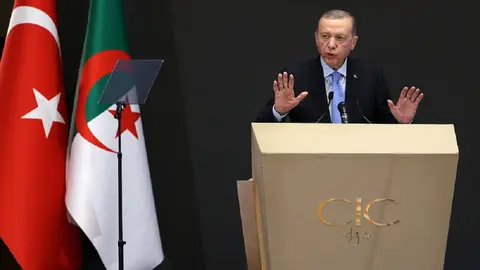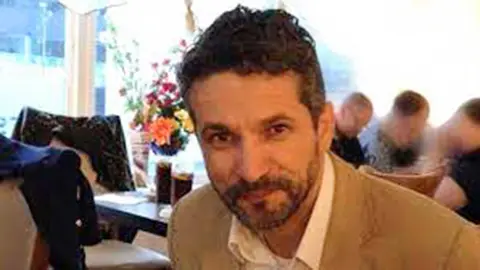General strike in Kabylia
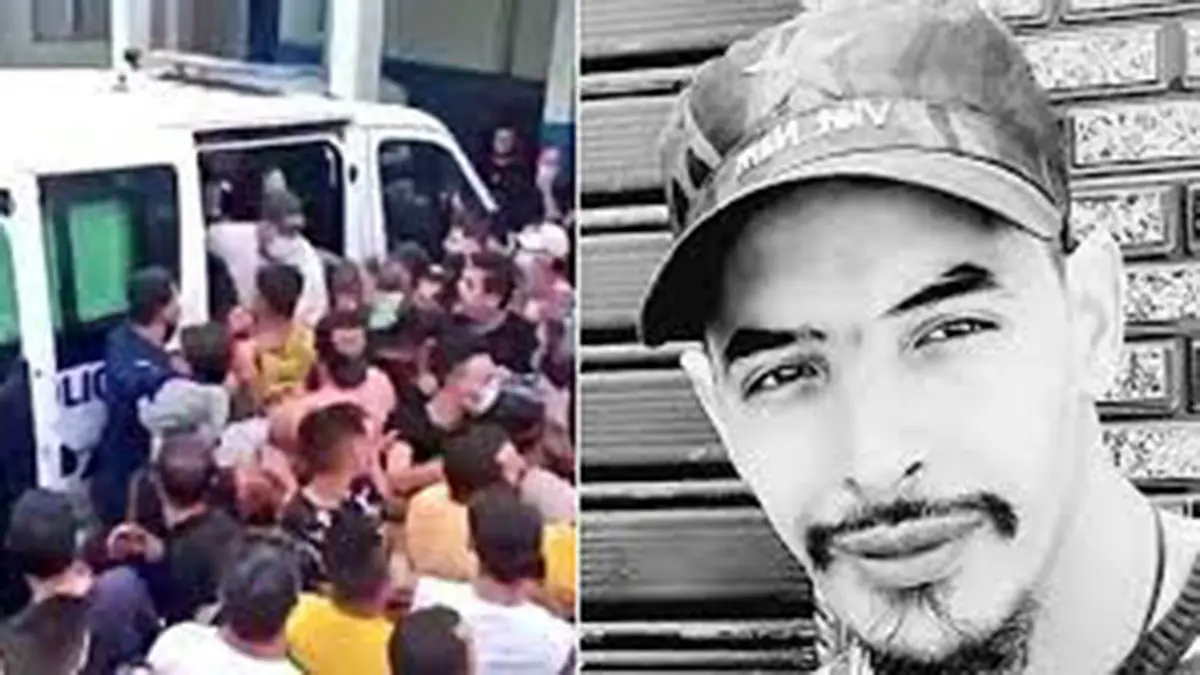
In protest against the verdict of the Algiers Court of Appeal on 23 October against 38 defendants sentenced to death and 29 others to prison sentences ranging from 3 to 20 years, the population of the town of Larba Nath Irathen has called a general strike every Thursday since 9 November.
Their honour scorned by these infamous sentences, the inhabitants of this peaceful town perched on the heights of Greater Kabylia intend to make their voice heard, as the people of this rebellious and untamed region have always done. They reject the sentences handed down at the end of "an unfair trial whose sole aim is to clear the police of any suspicion, who are the real perpetrators of the cowardly murder and lynching of Djamel Bensmaïl, as shown by the photos and video recordings disseminated on social networks," says a member of one of the convicted.
The case dates back to August 2021, when raging fires ravaged the Kabylia region for days without the authorities doing anything to extinguish them. They even refused Moroccan assistance, which offered two Canadair planes, preferring to let dozens of people die (65 in total), not to mention the material damage and the loss of livestock and thousands of olive, fig and cherry trees. This gave credence to the theory of the leader of the MAK (Movement for the Self-Determination of Kabylia), Ferhat Mehenni, who claimed that "this was a deliberate act of aggression by the Algerian authorities against Kabylia".
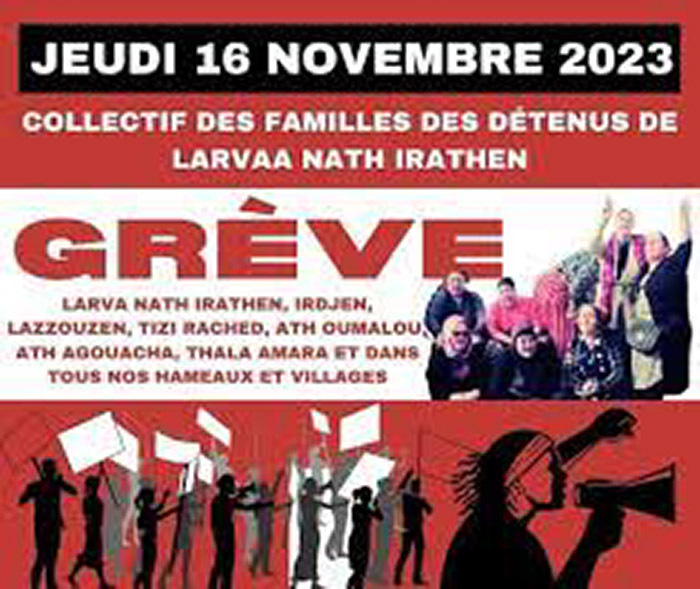
At the time, the Algerian authorities accused the MAK "aided by Morocco and Israel" of having set the fire. This was nothing more than a gross lie, proven by the investigation carried out under the direction of the same regime, which found no trace of the three parties involved.
On Wednesday 11 August, Djamel Bensmaïl, 38, a young artist known for his activism during the Hirak of 22 February 2019 in Algeria, travelled from his hometown of Meliana, in central-western Algeria, to Kabylia to help, in the words of his father at the time, "his friends in Kabylia who were fighting devastating forest fires".
According to information from those close to him, Djamel was being followed by the secret services, who feared that he might take advantage of the situation to start demonstrations against the authorities. On entering the city, he was arrested and taken away in a police van. When he arrived in front of the central police station, several plainclothesmen seized the van.
According to the security services' investigation, he was stabbed, dragged along the ground, killed and then burnt in the public square of the village of Larbaâ Nath Irathen, about 40 kilometres east of the capital of the wilaya of Tizi Ouzou. The scene was filmed from start to finish by onlookers and the images were posted on social media.
A few days later, the security services carried out a large-scale arrest campaign against the people who appeared in the footage. But the most prominent individuals, suspected of belonging to the police and internal security services, were not among those arrested.
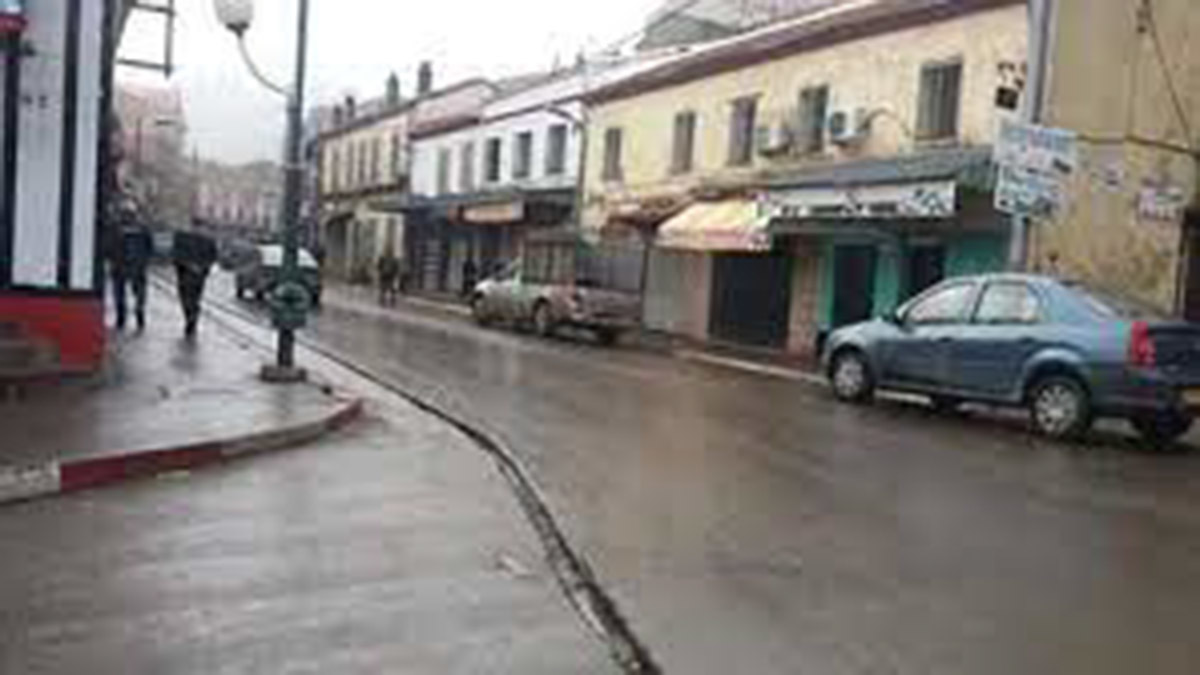
Long before the wave of arrests, official statements, one from the Larbaâ Nath Irathen court prosecutor and one from the police, contradicted each other and seemed to suggest that the police and secret services were passing the buck.
In November 2022, the trial was held at the Dar-El-Beïda court. At the end of the trial, 49 of the 102 defendants were sentenced to death. Another 28 were sentenced to between 2 and 10 years' imprisonment, while 7 were acquitted.
Although the appeal trial reduced the number of those sentenced to death from 49 to 38 and increased the number of those acquitted by 27, the remainder were sentenced to between 3 and 20 years' imprisonment.
The verdict of the Court of Appeal was not at all to the satisfaction of the inhabitants of Larbaâ Nath Irathen village, where the convicts came from. After unsuccessfully demanding the release of all the accused, they decided to organise a general strike every Thursday.
On the first Thursday of the strike, 9 November, Larba Nath Irathen was a ghost town. Shops were closed and schools were boycotted by teachers, administrators and students. Administrations were deserted by their employees and nothing was moving. The same thing happened the following Thursday.
On the third Thursday, things took a different turn. On the eve of the general strike on Thursday 23 November, a large-scale operation of threats and intimidation was carried out all day today in Ath Irathen.
1) The gendarmerie, of sad memory in Kabylia, made a heavy-handed round among traders, warning them one by one to stay open tomorrow Thursday 23, or else this time, they said, "it's serious" their business registrations would be withdrawn!
The head of the Transport Department of the Wilaya of Tizi-Ouzou went in person to Larbaâa Nath Irathen, where he held a meeting in the Daïra with the transporters, all of whom had been previously "summoned" to the meeting with this high-ranking "regional" official. This senior regional official summoned the transporters to work tomorrow, Thursday 23 November, or else they would lose their routes and transport permits. He informed them that they were "obliged" to work tomorrow or face "consequences.
The education department of the wilaya of Tizi-Ouzou has mobilised all the staff of lycées, colleges and schools to issue informative "notices" signed by the school principals and addressed to all pupils, informing them that "all absences will be cut" ...on Thursday 23 November".
The collective adds in its statement: "Let them know that our courage and determination to bring the truth to light and bring real justice to our martyred children is just as unwavering. The climate of terror cannot last forever, and force has always been the expression of the weakness of states". And he concludes: "You must know, however, that it will not last long. Kabylia, like its olive trees burned every year, will rise from the ashes you have sown".
This intimidation eventually widened the circle of protest to other neighbouring towns, notably Michelet and Tizi Rached. Other towns will join this protest movement, and the risk of the whole Kabyle country going up in flames cannot be ruled out. This is reminiscent of the events of 2001, which originated in Beni Douala on 18 April, two days before the commemoration of the Berber Spring of April 1980. Massinissa Guermah, an 18-year-old high school student, was killed by a burst of automatic weapons fired by a gendarme in the gendarmerie premises of Beni Douala (Ath Dwala), in Kabylia. This event triggered the Kabyle revolt. A revolt that resulted in more than 150 deaths, but whose achievements will go down in the history of Kabylia in gold.


